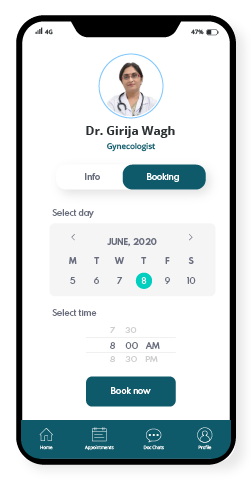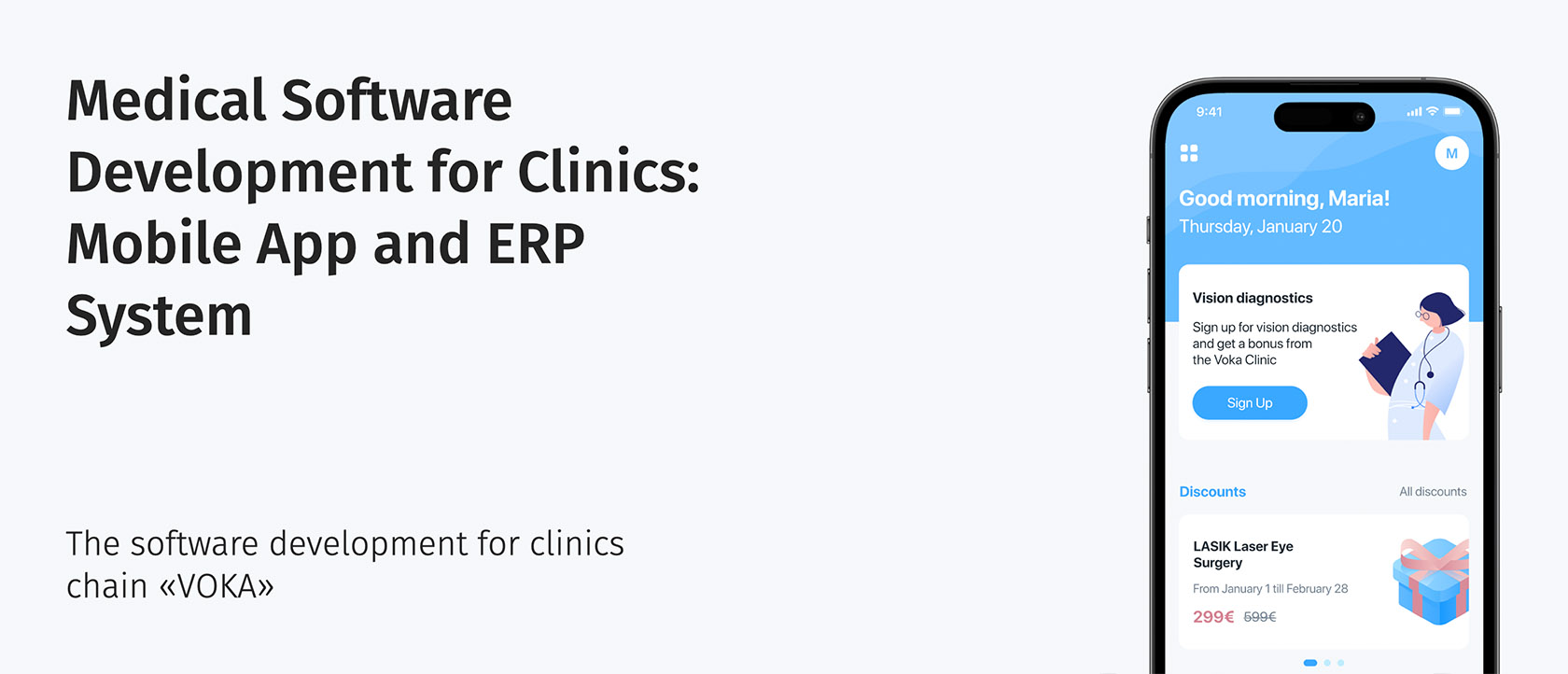The Future of Healthcare: Why Clinics Need a Mobile Application Today
As the health care landscape continues to develop, centers face mounting stress to adapt to individual assumptions for better benefit and availability. The integration of mobile applications can serve as an important technique for boosting patient involvement and simplifying procedures.
Altering Client Expectations
As the landscape of healthcare progresses, patient assumptions are undertaking a considerable change. Today's individuals are progressively looking for convenience, ease of access, and personalized care. With the increase of innovation, particularly mobile applications, people now prepare for a smooth integration of healthcare services into their every day lives. They want the capacity to take care of appointments, accessibility clinical documents, and interact with health care companies through their mobile phones, mirroring a shift in the direction of an extra proactive approach to health and wellness management.
Additionally, patients are becoming much more educated and encouraged, often looking into conditions and treatments on-line prior to consultations. This heightened understanding is paired with a need for transparency in health care procedures, including price price quotes and therapy choices. Therefore, providers are compelled to adapt by taking on digital tools that improve the client experience.
The expectation for efficient and prompt communication has actually never been higher, with several people considering responsiveness a crucial part of high quality care. mobile app for clinics. In this advancing landscape, medical care companies must acknowledge these changing assumptions and utilize mobile applications to promote a much more patient-centric strategy, ensuring that they not only satisfy however exceed the standards set by today's educated customers
Enhancing Client Involvement

Mobile applications assist in communication between individuals and health care service providers, making it possible for real-time visit scheduling, tips for medicine adherence, and straight messaging features. These functionalities not just enhance benefit yet also develop a feeling of responsibility amongst people. Mobile applications can offer academic web content customized to individual needs, helping patients much better comprehend their conditions and therapy options.
The assimilation of gamification elements within health care applications can additionally inspire individuals to engage in healthy and balanced habits, strengthening favorable lifestyle adjustments. Eventually, improving patient involvement through mobile applications leads to enhanced health outcomes, greater individual contentment, and a more collaborative healthcare experience.
Improving Facility Procedures
Enhancing center operations is crucial for enhancing process performance and enhancing client treatment. The application of mobile applications can dramatically minimize management concerns, permitting healthcare carriers to focus more on browse around here person interactions. By automating visit organizing, patient check-ins, and payment processes, facilities can minimize wait times and improve total functional efficiency.
Mobile applications likewise help with real-time access to patient records, making it possible for healthcare professionals to make enlightened choices quickly. This immediacy not just improves the high quality of care but likewise reduces the chance of mistakes related to lost or dated info. Leveraging mobile modern technology supports an extra organized approach to managing person follow-ups and therapy strategies, making sure that no important steps are neglected.
This allows for prompt replenishment and aids stay clear of disturbances in client care due to stock shortages. By incorporating these capabilities into their everyday procedures, centers can create a much more reliable and cohesive atmosphere, inevitably leading to enhanced individual results and complete satisfaction.
Improving Communication Networks
Reliable communication is often cited as a keystone of quality healthcare delivery. In today's hectic medical setting, mobile applications can considerably boost interaction channels between clinics, individuals, and doctor. By integrating mobile applications right into their procedures, facilities can help with real-time communications, ensuring that clients obtain timely info regarding their consultations, examination results, and therapy plans.
Mobile apps additionally equip clients to interact directly with their health care groups via protected messaging attributes. This straight line of interaction fosters a sense of involvement and enables prompt clarification of worries, which can result in better adherence to therapy websites procedures. Press notifications can remind clients of upcoming consultations or medication timetables, reducing no-show rates and improving overall health results.

Staying Affordable in Healthcare
In a rapidly evolving healthcare landscape, companies need to focus on innovation and adaptability to maintain a competitive side. The combination of mobile applications right into healthcare services is no longer optional; it is essential for facilities aiming to improve individual involvement, improve procedures, and improve general solution shipment.
As individuals progressively rely upon electronic systems for health monitoring, clinics that fail to adopt mobile innovation danger falling back. A well-designed mobile app can supply functions such as visit organizing, telemedicine appointments, and access to medical documents, supplying people with comfort and fostering commitment.

Rivals are also purchasing mobile services, so staying ahead calls for continual enhancement and staying educated regarding technological innovations. Facilities should not only apply mobile applications yet also take part in normal updates and refinements. Inevitably, the effective assimilation of mobile innovation will certainly distinguish forward-thinking healthcare organizations and established the standard for patient-centric treatment in a digital globe.
Conclusion
To conclude, the combination of mobile applications in centers is critical to resolve the progressing landscape of patient expectations. By improving client engagement, simplifying procedures, and improving communication networks, clinics can substantially enhance health results. Furthermore, the fostering of mobile technology settings clinics to continue to be why not look here affordable in an increasingly digital health care setting. Eventually, the strategic implementation of mobile applications stands for a vital action towards delivering customized and obtainable health care, consequently meeting the demands these days's empowered patients.
Eventually, enhancing person involvement with mobile applications leads to improved wellness end results, higher person contentment, and an extra collective health care experience.Mobile apps additionally assist in real-time access to person records, enabling medical care specialists to make educated decisions quickly. In today's hectic medical setting, mobile applications can considerably improve interaction channels in between centers, patients, and health care companies.Mobile applications likewise encourage clients to interact straight with their health care groups through safe messaging features. Eventually, the strategic application of mobile applications stands for an essential action towards delivering accessible and customized medical care, thereby fulfilling the needs of today's equipped individuals.
Comments on “The Effect of a Mobile App for Clinics on Operations Efficiency and Patient Contentment”